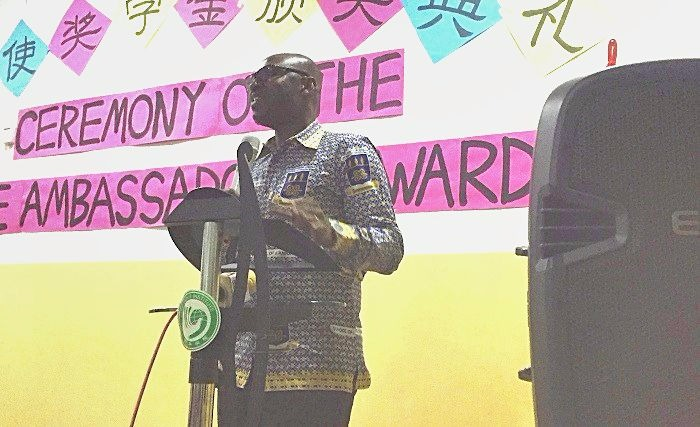
Speak local languages to your children - Lecturer advises parents
Children taught and socialised in their mother tongue develop the necessary skill that effectively guides their literacy skills in other languages.
Advertisement
This requires building a strong foundation for the first language at the early stages of the child’s development, which is crucial in conceptualizing the language acquisition process.
Once this is done, the basic structures and communication patterns of the native language is imprinted into the child who then uses that knowledge to acquire additional languages and also aids them to build a sense of cultural and social identity.
This was according to Dr Clement Appah, a senior lecturer and coordinator of the Chinese section at the University of Ghana’s Department of Modern Languages.
According to him, Ghanaian children can become linguistically competent if their parents begin to appreciate the pivotal role local languages play in improving the academic and intellectual performance of their children.
“The unfortunate thing we have in Ghana is that people are speaking English to their children instead of the local language. For example a parent who himself or herself is not well grounded in the English language insists on speaking to the child in English. They do a lot of damage to the children linguistically because the children end up acquiring defective structures,” he said.
Dr Appah who was speaking on the sidelines of the Chinese Ambassadors Awards held at the Confucius Institute last Tuesday believes that a large portion of the work in preserving the linguistic heritage of the country falls on parents who have sadly been swayed by contemporary languages to the detriment of the indigenous ones.
“If you are a parent and your native language is Ga, speak to your child in Ga. Let the child acquire the skill or language to the best he or she can.”
Dr Appah also blamed the lack of teaching materials with local concepts and implementation of a national policy, which stipulates that the first 3 years of the child’s education should be done in the local language.
“So what we do is that for the first three years you are speaking to the child in the native language and you are teaching him/her English as a subject. After three years when the child has moved from class 3 to class four, you switch and start teaching the child in English and teach the local language as a subject. That way because the child grows up speaking the local language, then teaching the child to know new things in the local language becomes easy.
He said the solution to the problem is to commission Ghanaian writers to write with local concepts.
“If you go out there and ask Unimax MacMillan to write something for you. They will write for you " but where is the writer coming from .The writer coming from Europe is not going to write about Harmattan because he has not been here before .



